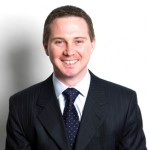Neil become fascinated by tax whilst studying law at university. After a spell of working in audit, he moved into corporate tax and has never looked back. He shares his experiences of working in corporate tax and answers the question: ‘why tax?’
I first came into contact with tax law when I was at university studying for a law degree. I was fascinated by the subject, more so than other areas of my degree.
Rather than start my career in tax, I chose to keep my options open and study for ACA as an auditor at BDO. I have never regretted my time as an auditor; it was invaluable experience that gave me a real grounding in accountancy that I still use every day in my career. However, it was not long before I was attracted back to tax. After three and half years of being an auditor I decided to hang up my coloured pens and take a secondment in corporate tax. Almost immediately I felt at home and started studying for CTA which I sat ten months later.
My time in tax
My time in tax at BDO has been characterised by broad experience. I have worked with a variety of different sized clients across many industry sectors. Not only have I worked in practice, but I have had secondments to industry, including working for a large US multinational technology company and for spin out of a UK Plc as a temporary Group Tax Manager.
My time working in industry reinforced my appreciation of the commercial aspects that play a role in deciding tax strategy. Clients want the commercially right answer, not always the purely technically right one.
By 2008 I decided to deepen my knowledge of international and cross border tax issues given that more and more of my clients were operating cross border. BDO has an extensive international network across 138 countries which is certainly attractive to me, as well as our clients. Therefore I pulled the study books out and started studying for the Advanced Diploma in International Tax. I did this at the same time as starting a family and so had my hands full to say the least.
I completed my Diploma in 2012 achieving the prize in my last exam, a fitting way to finish my professional exam career (honestly that is the last one!).
Naturally people ask me: ‘why tax?’ It is the variety of the clients and the work that I enjoy. Some people imagine that it is a technical job pouring over legislation and case law. There is certainly a significant element of this, but you cannot advise clients or reach a conclusion on the technical aspects without understanding the commercial aspects. This involves learning about a business’s industry, its plans and issues.
It is the bringing together of the technical and commercial aspects that motivates me, as it allows me to get close to a business. I often look back on some meetings and realise that we spent more time talking about the business than tax.
Clients see real value when you mention something they had not thought of or that makes their life easier, there is a real sense of an achievement when you can do this. Clients usually don’t forget it either, which can make for a stronger working relationship; learning how to demonstrate and deliver client service has been a crucial part of my training at BDO.
Variety is a word that can be used to describe my ’typical’ day. It is not uncommon for me to spend time on a dozen or more clients in a day, and more often than not something will come up that I was not expecting, which keeps me on my toes. Our recent merger with PKF will also throw up new and exciting challenges as the firm grows.
Current professional challenges
There are many of these, but I would highlight the following:
In constrained times, clients are increasingly focused on value. The challenge is to deliver on this at the same time as managing the financial fundamentals of providing a professional service. This is no different to many other businesses in the current economic environment, but professional service businesses have a raft of compliance and regulatory issues to deal with that clients are often completely unaware of.
Clients increasingly expect instant replies, which makes some days very busy and requires superhuman skills in juggling and managing expectations.
You often hear the comment that tax legislation is too complex and this is true. Consequently, when providing advice, it is necessary to make sure the client is not inadvertently caught by some anti-avoidance rule. Therefore a lot of time can be spent going through legislation only to conclude a particular rule is ‘not-applicable’.
Advice on a career
In the tax profession, whether you are in practice or industry, you are providing a service. It could be to a client or an internal team. Therefore it is important to remember it is not just about the advice you provide, although you need to be right, but how you provide it that counts. The quality of your service is often what you are remembered for and at BDO we are committed to providing exceptional client service.
For someone joining the profession in practice I would say it is never too early to start building your ‘work winning’ skills, whether from existing or new clients. As an individual you will be more valuable when it comes to promotion time and there is a real buzz when you win new clients.
Finally, get as broad experience as you can. Involve yourself with as many different clients and situations as you can. Not only does this make you a more rounded professional, but it makes your career more interesting.






